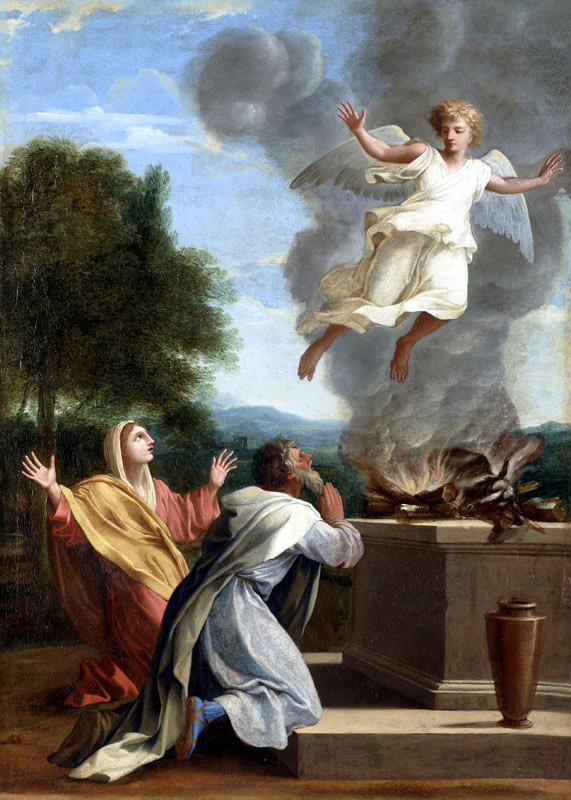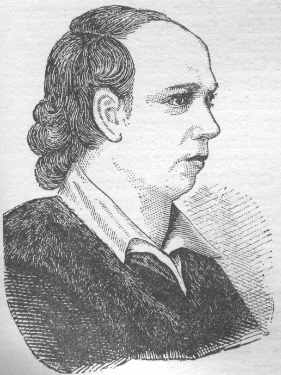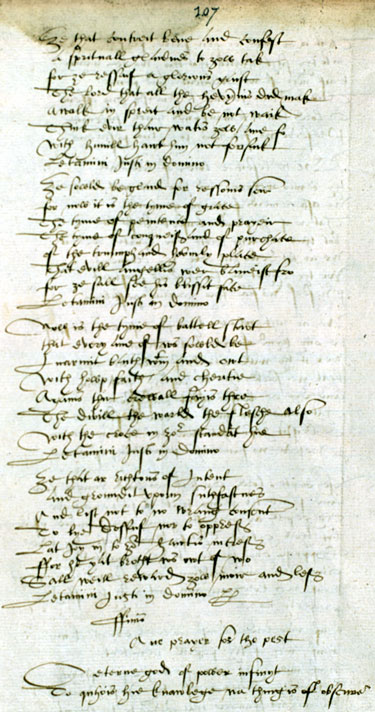|
1765 In Poetry
Nationality words link to articles with information on the nation's poetry or literature (for instance, Irish or France). Events * October 10 – Samuel Johnson's edition of '' The Plays of William Shakespeare'' is published in London after ten years in the making. * ''Approximate year'' – Beginning of the ''Sturm und Drang'' movement in German literature. Works published United Kingdom * James Beattie: ** ''The Judgment of Paris'' ** ''Verses Occasioned by the Death of Charles Churchill'' (died November 1764; see also Percival Stockdale's work, below) * Benjamin Church, "The Times", English, Colonial America * William Collins, ''The Poetical Works of William Collins'', the author's first collected edition * Oliver Goldsmith, '' The Traveller'' * Edward Jerningham, ''An Elegy Written Among the Ruins of an Abbey'' * James Macpherson, ''The Works of Ossian'', contains Macpherson's purported translations (actually much edited, loosely translated fragments of Gaeli ... [...More Info...] [...Related Items...] OR: [Wikipedia] [Google] [Baidu] |
Irish Poetry
Irish poetry is poetry written by poets from Ireland. It is mainly written in Irish language, Irish and English, though some is in Scottish Gaelic literature, Scottish Gaelic and some in Hiberno-Latin. The complex interplay between the two main traditions, and between both of them and other poetries in English and Scottish Gaelic literature, Scottish Gaelic, has produced a body of work that is both rich in variety and difficult to categorise. The earliest surviving poems in Irish date back to the 6th century, while the first known poems in English from Ireland date to the 14th century. Although there has always been some cross-fertilization between the two language traditions, an English-language poetry that had absorbed themes and models from Irish did not finally emerge until the 19th century. This culminated in the work of the poets of the Irish Literary Revival in the late 19th and early 20th century. Towards the last quarter of the 20th century, modern Irish poetry tended ... [...More Info...] [...Related Items...] OR: [Wikipedia] [Google] [Baidu] |
1762 In Poetry
Nationality words link to articles with information on the nation's poetry or literature (for instance, Irish or France). Events Works published Colonial America * James Bowdoin, four poems in the anthology ''Harvard Verses'' presented to George III in an attempt to gain royal support for Harvard College * Thomas Godfrey, "The Court of Fancy: A Poem", English, Colonial America * Francis Hopkinson: ** "An Exercise" ** "Science: A Poem" ** ''A Collection of Psalm Tunes'' United Kingdom * James Boswell, ''The Cub at Newmarket'', published by James Dodsley * Elizabeth Carter, ''Poems on Several Occasions'' * Charles Churchill, ''The Ghost, Books I-III'' (followed by Book IV in 1763) * Mary Collier, ''Poems, on Several Occasions'' * John Cunningham, ''The Contemplatist'' * Thomas Denton, ''The House of Superstition'', prefixed to William Gilpin's ''Lives of the Reformers'', written in imitation of Edmund Spenser * William Falconer, ''The Shipwreck'' (revised in 1764 and 1769) ... [...More Info...] [...Related Items...] OR: [Wikipedia] [Google] [Baidu] |
1850 In Poetry
— From Cantos 27 and 56, '' In Memoriam A.H.H.'', by Alfred Tennyson, published this year Nationality words link to articles with information on the nation's poetry or literature (for instance, Irish or France). Events * May (late) – Alfred Tennyson's poem '' In Memoriam A.H.H.'', written to commemorate the death of his friend and fellow poet Arthur Hallam in 1833, is published by Edward Moxon in London; on June 1 the writer's anonymity is broken by ''The Publishers' Circular'' * June 13 – Alfred Tennyson marries his childhood friend Emily Sellwood at Shiplake * July – William Wordsworth's '' The Prelude; or, Growth of a Poet's Mind: An Autobiographical Poem'', on which he has worked since 1798, is first published about 3 months after his death by Edward Moxon in London in 14 books, with the title supplied by the poet's widow, Mary; originally intended to form the introduction to ''The Recluse'', for which ''The Excursion'' (1814) formed the second part ... [...More Info...] [...Related Items...] OR: [Wikipedia] [Google] [Baidu] |
Manoah Bodman
Manoah ( ''Mānoaḥ'') is a figure from the Book of Judges 13:1-23 and 14:2-4 of the Hebrew Bible. His name means "rest". Family According to the Bible, Manoah was of the tribe of Dan and lived in the city of Zorah. He married one woman, who was barren. Her name is not mentioned in the Bible, but according to tradition she was called Hazzelelponi or Zelelponith. She was a daughter of Etam and sister of Ishma. Manoah and his wife were the parents of famous judge Samson. According to Rabbinic tradition, they also had a daughter called Nishyan or Nashyan. Birth of Samson Manoah and his wife were childless, but the angel of the Lord appeared to Manoah's wife and told her that she would give birth to a son. The child was to be dedicated from the womb as a Nazirite, which entailed restrictions on his diet, which the angel spelled out in detail. The woman (whose name is not mentioned in the Bible) told her husband, "A man of God came to me". Manoah prayed and the angel returned to ... [...More Info...] [...Related Items...] OR: [Wikipedia] [Google] [Baidu] |
1774 In Poetry
Nationality words link to articles with information on the nation's poetry or literature (for instance, Irish poetry, Irish or French poetry, France). Events * During this year's harvest, 15-year-old Scottish poetry, Scottish farm labourer Robert Burns is assisted by his contemporary Nelly Kilpatrick who inspires his first attempt at poetry, "O, Once I Lov'd A Bonnie Lass". * Jacques Delille elected to membership in the Académie Française in large part due to his verse translation of the ''Georgics'' in 1769 in poetry, 1769 Works published American poetry, Colonial America * Hugh Henry Brackenridge, "A Poem on Divine Revelation" * Samuel Occom, editor, ''A Choice Collection of Hymns and Spiritual Songs'' * John Trumbull, "An Elegy on the Times" English poetry, United Kingdom * James Beattie (writer), James Beattie, ''The Minstrel; or, The Progress of Genius'', Book 2 (Book 1 1771 in poetry, 1771, both books published together with other verse in 1775 in poetry, 1775) * William ... [...More Info...] [...Related Items...] OR: [Wikipedia] [Google] [Baidu] |
Charles Batteux
Charles Batteux (6 May 171314 July 1780) was a French philosopher and writer on aesthetics. Biography Batteux was born in Alland'Huy-et-Sausseuil, Ardennes, and studied theology at Reims. In 1739 he came to Paris, and after teaching in the colleges of Lisieux and Navarre, was appointed to the chair of Greek and Roman philosophy in the Collège de France. His 1746 treatise ''Les beaux arts réduits à un même principe'' (translated into English as ''The Fine Arts Reduced to a Single Principle'', trans. James O. Young, Oxford: Oxford University Press, 2015) was an attempt to find a unity among existing theories of beauty and taste on "a single principle", and its views were widely accepted, This cites Dacier et Dupuy, ''Éloges'', in ''Mémoires de l'Académie des Inscriptions''. not only in France but throughout Europe. According to P. O. Kristeller, The reputation thus gained, confirmed by his translation of Horace (1750), led to Batteux's becoming a member of the Académ ... [...More Info...] [...Related Items...] OR: [Wikipedia] [Google] [Baidu] |
Percival Stockdale
Percival Stockdale (1736–1811) was an English poet, writer and reformer, active especially in opposing slavery. Biography Born 26 October 1736 (O. S.) at Branxton, Northumberland, he was the only child of Thomas Stockdale, vicar of the parish and perpetual curate of Cornhill-on-Tweed, and his wife, Dorothy Collingwood of Murton, Northumberland. After spending six years at Alnwick grammar school, he went in 1751 to the grammar school at Berwick-upon-Tweed. He became acquainted with the Greek and Latin classics, and acquired a taste for poetry. In 1754 Stockdale entered the University of Aberdeen, with a bursary for the united colleges of St. Leonard and St. Salvador. The death of his father in 1755 left the family with money troubles, and he accepted the offer of a lieutenancy in the Royal Welsh Fusiliers. He joined Admiral John Byng 's fleet, which anchored in the Bay of Gibraltar in May 1756. Stockdale, with part of his regiment, was on board HMS ''Revenge'', in the expedit ... [...More Info...] [...Related Items...] OR: [Wikipedia] [Google] [Baidu] |
Hymns And Spiritual Songs (book)
''Hymns and Spiritual Songs for the Fasts and Festivals of the Church of England'', by Christopher Smart, was published in 1765, along with a translation of the ''Psalms of David'' and a new version of ''A Song to David''. He wrote these poems while he was in a mental asylum and during the time he wrote ''Jubilate Agno''. Background For many years after the Protestant Reformation, John Calvin's claim that non-Biblical music was inappropriate was popularly held.Curry p. 70 Isaac Watts wrote and published a collection of hymns and spiritual songs in the early 18th century. But, Jonathan Swift and Samuel Johnson parodied Calvin's beliefs, claiming that religion and poetry could not mix because the poetry could be damaged: Swift claimed that "the smallest quantity of religion, like a single drop of Malt-Liquor in Claret, will muddy and discompose the brightest Poetical Genius." Johnson wrote that Watt's "devotional poetry is, like that of others, unsatisfactory. The paucity of its t ... [...More Info...] [...Related Items...] OR: [Wikipedia] [Google] [Baidu] |
Christopher Smart
Christopher Smart (11 April 1722 – 20 May 1771) was an English poet. He was a major contributor to two popular magazines, ''The Midwife'' and ''The Student'', and a friend to influential cultural icons like Samuel Johnson and Henry Fielding. Smart, a high church Anglican, was widely known throughout London. Smart was infamous as the pseudonymous midwife "Mrs. Mary Midnight" and for widespread accounts of his father-in-law, John Newbery, locking him away in a mental asylum for many years over Smart's supposed religious "mania". Even after Smart's eventual release, a negative reputation continued to pursue him as he was known for incurring more debt than he could repay; this ultimately led to his confinement in debtors' prison until his death. His two most widely known works are ''A Song to David'' and ''Jubilate Agno'', which are believed to have been written during his confinement in St. Luke's Asylum, although this is still debated by scholars as there is no record o ... [...More Info...] [...Related Items...] OR: [Wikipedia] [Google] [Baidu] |
Sir Patrick Spens
"Sir Patrick Spens" is one of the most popular of the Child Ballads (No. 58) (Roud 41), and is of Scottish origin. It is a maritime ballad about a disaster at sea. Background ''Sir Patrick Spens'' remains one of the most anthologized of British popular ballads, partly because it exemplifies the traditional ballad form. The strength of this ballad, its emotional force, lies in its unadorned narrative which progresses rapidly to a tragic end that has been foreshadowed almost from the beginning. It was first published in eleven stanzas in 1765 in Bishop Thomas Percy's ''Reliques of Ancient English Poetry'', based on "two MS. copies transmitted from Scotland". The protagonist is referred to as "young Patrick Spens" in some versions of the ballad. Plot The story as told in the ballad has multiple versions, but they all follow the same basic plot. The King of Scotland has called for the greatest sailor in the land to command a ship for a royal errand. The name "Sir Patrick Spens" i ... [...More Info...] [...Related Items...] OR: [Wikipedia] [Google] [Baidu] |
Scottish Poetry
Poetry of Scotland includes all forms of verse written in Brythonic, Latin, Scottish Gaelic, Scots, French, English and Esperanto and any language in which poetry has been written within the boundaries of modern Scotland, or by Scottish people. Much of the earliest Welsh literature was composed in or near Scotland, but only written down in Wales much later. These include ''The Gododdin'', considered the earliest surviving verse from Scotland. Very few works of Gaelic poetry survive from this period and most of these in Irish manuscripts. ''The Dream of the Rood'', from which lines are found on the Ruthwell Cross, is the only surviving fragment of Northumbrian Old English from early Medieval Scotland. In Latin early works include a "Prayer for Protection" attributed to St Mugint, and ''Hiberno-Latin#Altus Prosator, Altus Prosator'' ("The High Creator") attributed to St Columba. There were probably filidh who acted as poets, musicians and historians. After the "de-gallicisation" ... [...More Info...] [...Related Items...] OR: [Wikipedia] [Google] [Baidu] |
Reliques Of Ancient English Poetry
The ''Reliques of Ancient English Poetry'' (sometimes known as ''Reliques of Ancient Poetry'' or simply Percy's ''Reliques'') is a collection of ballads and popular songs collected by Bishop Thomas Percy and published in 1765. Sources The basis of the work was the manuscript which became known as the Percy Folio. Percy found the folio in the house of his friend Humphrey Pitt of Shifnal, a small market town of Shropshire. It was on the floor, and Pitt's maid had been using the leaves to light fires. Once rescued, Percy would use just forty-five of the ballads in the folio for his book, despite claiming the bulk of the collection came from this folio. Other sources were the Pepys Library of broadside ballads collected by Samuel Pepys and ''Collection of Old Ballads'' published in 1723, possibly by Ambrose Philips. Bishop Percy was encouraged to publish the work by his friends Samuel Johnson and the poet William Shenstone, who also found and contributed ballads. Percy did no ... [...More Info...] [...Related Items...] OR: [Wikipedia] [Google] [Baidu] |






